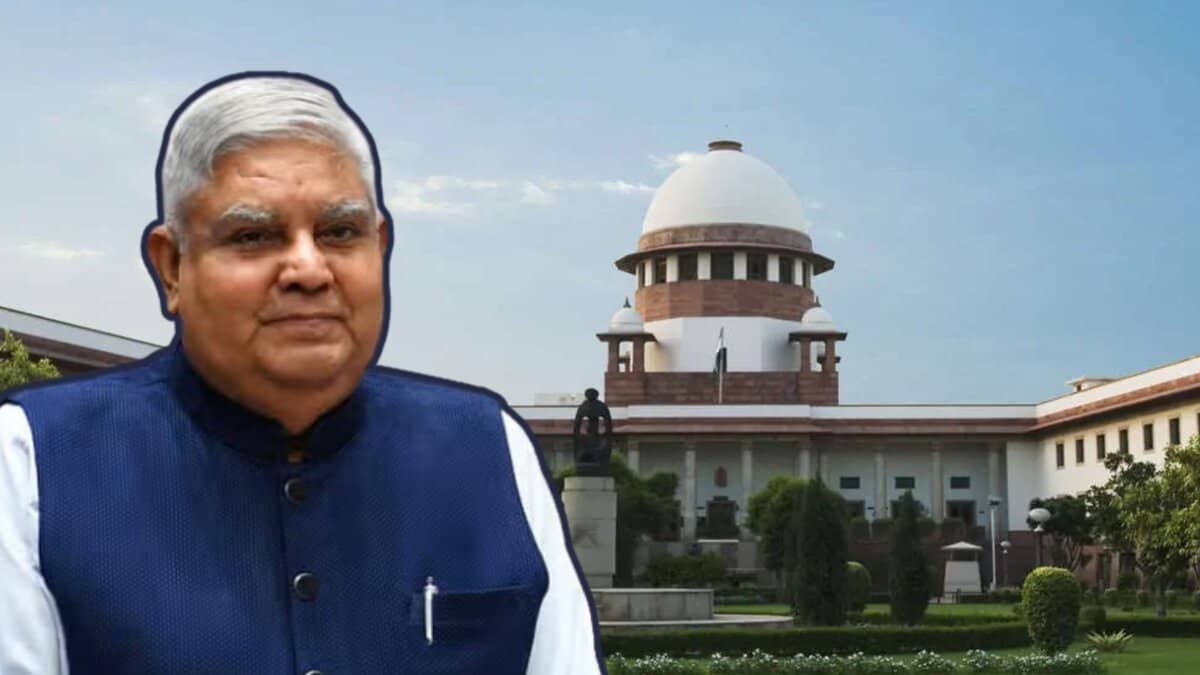
Vice President and Rajya Sabha Chairman Jagdeep Dhankar on Thursday, April 17, remarked that judges in India are not answerable to anyone and that the law does not apply to them.
He was speaking at the closing ceremony of the sixth Rajya Sabha Internship Program held at the Vice-President’s Enclave.
“I believe Parliament cannot write court judgments, and courts cannot make laws. But now we are seeing courts often directing how the government should function. The government is chosen by the people and is answerable to Parliament and voters. You can question the government in Parliament. But if courts start making executive decisions, who can question them? Who are they accountable to in elections?” Dhankar asked.
Dhankar’s statements come on the backdrop of the Supreme Court’s recent judgement on the powers of a Governor and President when it came to passing laws. He remarked that courts are acting like a ‘super parliament’.
On April 8, the Apex Court, while hearing a writ petition filed by the Tamil Nadu government challenging the Governor’s prolonged inaction on important bills, said that the actions by the Head of the State were not only deliberately obstructive but also violated constitutional procedure.
“If a Bill has been passed by the legislature for a second time without any changes, the Governor must give his/her consent within one month. The Constitution, in the phrase “shall not withhold assent,” mandates that the Governor must assent to such bills,” stated the verdict delivered by Justice JB Pardiwala and Justice R Mahadevan.
Reacting to the top court’s verdict, Dhankar opined that the judiciary’s job is to write judgments, and the executive’s job (Parliament and its representatives) is to make laws. “The balance should be respected. It not not a healthy practice in a democracy where the courts take the role of the executive,” he remarked.
On Justice Yashwant Verma case
Vice President Dhankar also spoke about the recent case where cash was found at the residence of Delhi High Court judge Yashwant Verma and questioned how an inquiry was held without registering an FIR.
He said that the judiciary has been put “in the dock”.
“No investigation under law is in progress at the moment because for a criminal investigation, the initiation has to be by an FIR. It is not there. Every cognizable offence is required to be reported to the police, and failure to report a cognizable offence is a crime,” Dhankar said.
A three-member committee has been set up to investigate Justice Verma’s case. However, the Vice President says that the committee can only give a recommendation and that the decision to remove the concerned judge lies in the hands of the executive.
“Investigation is not the domain of the judiciary. Is the committee under the Constitution of India? No. Is this committee of three judges having any sanction under any law emanating from Parliament? No. What can the committee do? The committee can at most make a recommendation. Recommendation to whom and for what? The kind of mechanism we have for judges, the only action that can be taken is by the Parliament, when proceedings of removal are initiated,” he said.

